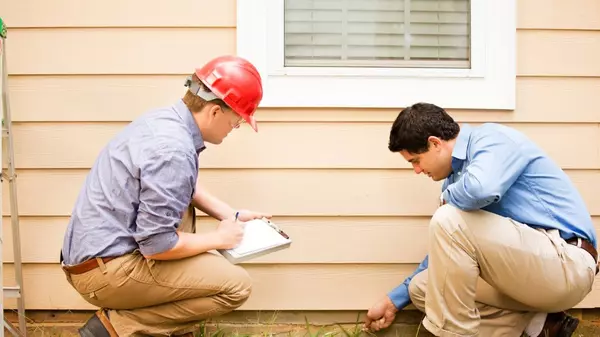
Preparing Your Home For Winter In Upstate New York
Preparing Your Home for Winter in Upstate NY As the temperature starts to drop and the leaves change color, it's important to start thinking about preparing your home for winter. Upstate NY winters can be harsh, with snow, ice, and cold temperatures that can take a toll on your home. Here are a few tips to help you get your home ready for the winter: 1. Insulate your home. Make sure your attic, basement, and crawl spaces are properly insulated. This will help to keep your home warm and reduce your energy bills. Seal any air leaks around windows and doors. Install weather stripping and caulk around windows and doors. Consider adding a door sweep to your exterior doors. 2. Protect your pipes. Wrap exposed pipes with insulation to prevent them from freezing. Let your faucets drip slightly to prevent pipes from freezing. Open cabinets under sinks to allow warm air to circulate around pipes. If you have a vacation home, make sure to drain the pipes before you leave for the winter. 3. Clean your gutters and downspouts. Remove leaves, twigs, and other debris from your gutters and downspouts. Install gutter guards to prevent debris from accumulating in your gutters. Clean your gutters and downspouts twice a year, once in the fall and once in the spring. 4. Trim your trees and shrubs. Trim trees and shrubs that are close to your house to prevent them from falling on your home in a storm. Remove dead branches that could fall and damage your home. 5. Inspect your roof for damage. Look for missing or damaged shingles. Check for leaks around chimneys and vents. Have a professional inspect your roof if you are unsure of its condition. 6. Stock up on winter supplies. Make sure you have enough snow and ice melt on hand. Stock up on sand for traction on icy walkways. Have a shovel and a snow blower on hand to clear snow from your walkways and driveway. Have a flashlight and batteries on hand in case of a power outage. 7. Winterize your outdoor equipment. Drain the gas from your lawnmower and other outdoor equipment. Bring your outdoor furniture indoors or cover it with a tarp. Disconnect your hoses from your outdoor faucets and drain them. 8. Make sure your heating system is in good working order. Schedule a tune-up with a qualified HVAC technician. Change your furnace filter once a month. Check your carbon monoxide detectors to make sure they are working properly. By following these tips, you can help to protect your home from the harsh winter weather and ensure that your family is safe and comfortable all season long.

How Do I Handle Multiple Offers?
As a seller, receiving multiple offers on your home can be both exciting and overwhelming. While it may seem like a dream situation to have multiple buyers interested in your property, it can also be difficult to navigate how to handle each offer. So, how do you handle multiple offers? Here are some tips for sellers to consider when navigating this situation.Firstly, it is important to have a real estate agent who is experienced in handling multiple offers. Your agent should be able to guide you through the process and help you understand the pros and cons of each offer. They should also be able to negotiate on your behalf and ensure that you get the best deal possible.When it comes to accepting an offer, it is important to consider more than just the price. While a high offer may seem like the best option, there are other factors to consider such as the buyer's financing, contingency clauses, and closing date. For example, a cash offer may be more appealing than a higher offer with a financing contingency. Additionally, a buyer who is willing to close quickly may be more desirable than a buyer who needs several months to close.Another important factor to consider is the strength of the offer. A strong offer includes a reasonable price, a solid financing plan, and minimal contingencies. It is important to not only consider the offer amount, but also the likelihood of the sale actually closing.It is also important to keep the lines of communication open with all potential buyers and their agents. Your agent should be transparent about the fact that there are multiple offers on the table, but should not disclose any specific details about the other offers. This can help create a sense of urgency among buyers and may lead to more competitive offers.Finally, as a seller, it is ultimately up to you to decide which offer to accept. In some cases, it may make sense to counteroffer a buyer to see if they are willing to improve their offer. In other cases, it may be clear that one offer is stronger than the others and should be accepted immediately.In conclusion, receiving multiple offers on your home can be a great situation for a seller, but it can also be overwhelming. It is important to have an experienced agent to guide you through the process and help you understand the pros and cons of each offer. Remember to consider more than just the price and to keep the lines of communication open with potential buyers. Ultimately, it is up to you to decide which offer to accept, but with the right guidance, you can make an informed decision that benefits you in the long run.

How Do Real Estate Agents Get Paid?
When selling a property, one of the most important decisions that homeowners have to make is choosing a real estate agent. However, before making a decision, it is essential to understand how real estate agents get paid. In this article, we will discuss the compensation structure of real estate agents.Brokers CommissionsReal estate agents work under the supervision of a broker. A broker is a licensed professional who manages the business and financial aspects of a real estate transaction. The broker is responsible for setting the commission rate that agents will receive for their services.The commission paid to real estate agents is typically a percentage of the sale price of the property. The average commission rate is around 6% of the sale price. However, this rate can vary depending on the local market and the services provided by the agent.Who Pays the Commission?The commission is usually paid by the seller of the property. When a property is sold, the commission is deducted from the sale proceeds before the seller receives the remaining amount. The commission is split between the listing agent (the agent who represents the seller) and the buyer's agent (the agent who represents the buyer).The split of the commission between the listing agent and the buyer's agent can vary depending on the agreement between them. In some cases, the split is 50/50, while in other cases, it may be an uneven split.Buyer's Agent CommissionThe commission paid to the buyer's agent is typically paid by the seller. This is because the buyer's agent is involved in the transaction to represent the buyer's interests. However, in some cases, the buyer may agree to pay the commission directly to their agent.It is important to note that the commission paid to the buyer's agent does not affect the sale price of the property. The commission is paid separately from the sale price and is not added to the final amount.ConclusionReal estate agents are compensated by receiving a commission based on the sale of a property. The commission rate is typically a percentage of the sale price of the property, which is set by the broker. The commission is paid by the seller of the property and is split between the listing agent and the buyer's agent. Understanding how real estate agents are paid can help homeowners make informed decisions when choosing an agent to sell their property.
Categories
Recent Posts










